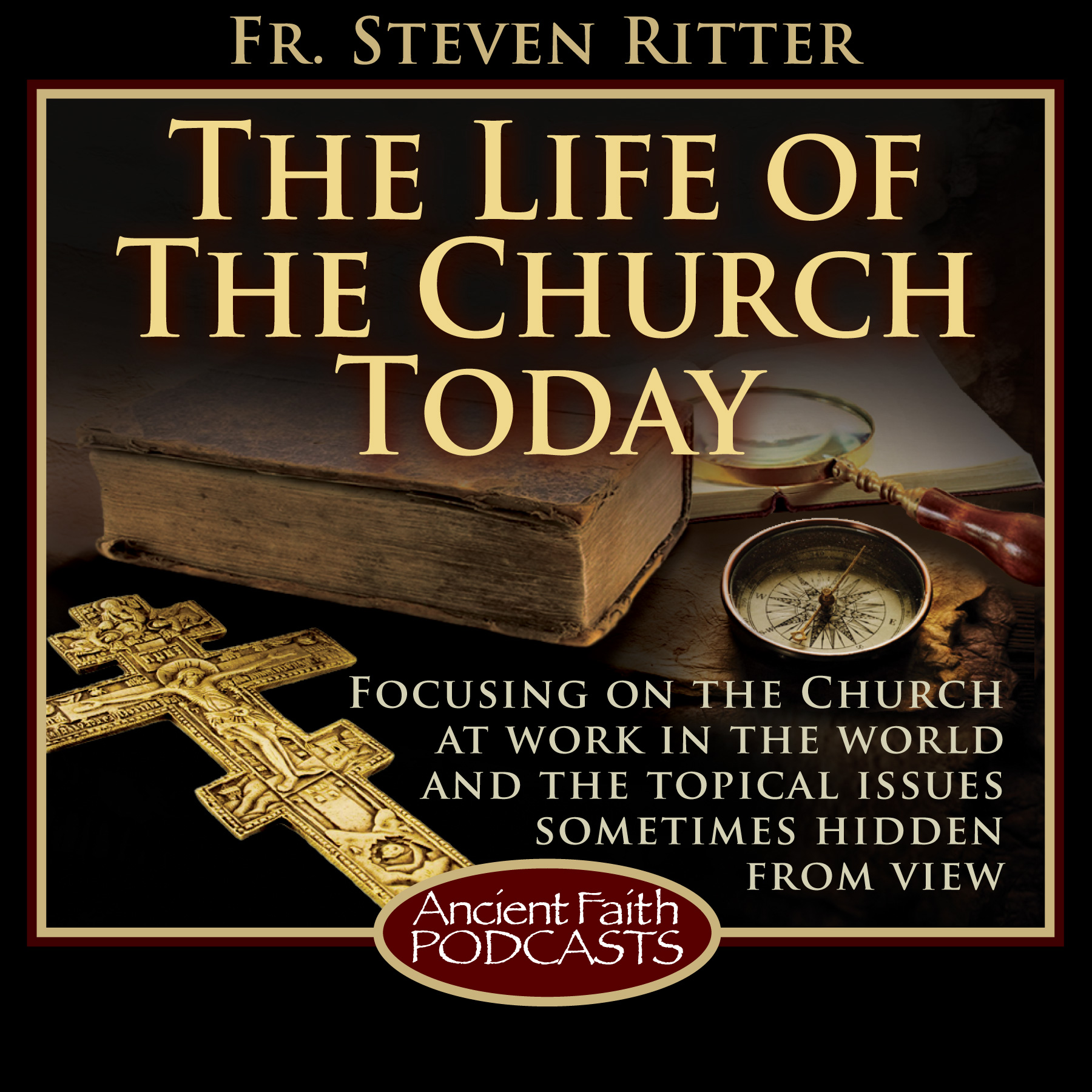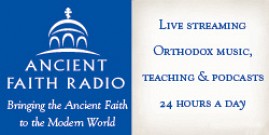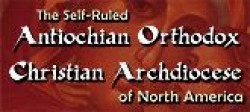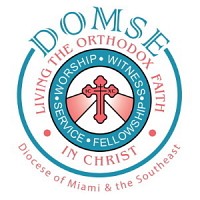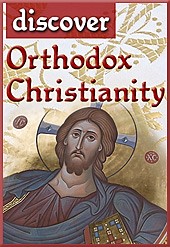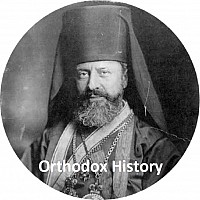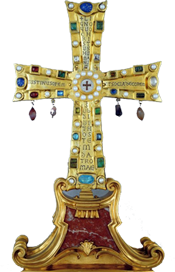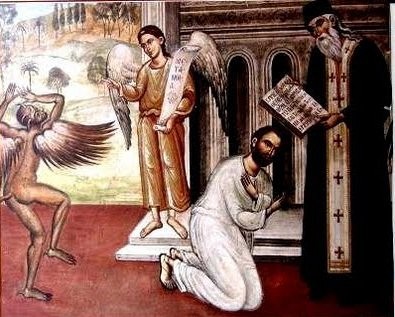
A few years ago, His Holiness Patriarch Alexei, issued a resolution about the relationship of parish pastors to their flock. In it he said “The task of a confessor is not to remake a person, not to make of him his own image, a "clone." He (the priest) should rather, with great love and respect to the individuality of each person, help give Christ a place in his life so that a person, having himself, with the help of the Holy Spirit, defeated the sin that is in him, becomes such as Christ wants to see him – unique, free, responsible, conscientious, a developed individual. The confessor must teach him to discern where the grace of the Holy Spirit is, where the natural course of things is, where passion and sin are, so that all this might not become jumbled in a person's head, mangling his life.” And further on, when discussing the need for pastors to see the laity as spiritual equals, “Clearly, many pastors have a need to see their flock exclusively as unreasonable children with whom they can speak condescendingly, in a language of commands, admonitions, and lectures. In all of this we see a mutual disrespect and a forgetting of what is the primary reality – that the Church is not a kindergarten where there are authoritarian educators and foolish children, but rather it is the Body of Christ, that is, the spiritual organic union in Christ of mature people who have come into their own measure, each one having from God his own gift of serving. It is indispensable to begin to realize this.”
Unfortunately the Patriarch’s words ring all too true in our own parishes and pastoral situations, with the lines often blurred as to the extent which a spiritual confessor should—and in some cases must—involve himself or intervene without permission in the lives of his parishioners. To be sure, parish life in general means dealing with a wide variety of spiritual issues strewn around an equally wide variety of laypeople whose spiritual development and levels vary greatly, even exorbitantly. And the wise pastor will of course be able to discern this and apply different tactics according to the problems that he sees in any one individual. But for those who are dealing with a large number of people, or with problems that seem high maintenance and consistently present, the temptation can often be to treat the parish with a “one size fits all” mentality, or to offer guidance that far too often takes the form of dictatorial instructions that prove offensive to the layman, or too intrusive, especially when not sought in the first place. Even worse are situations that are often similar in nature yet are treated in far different manners, giving rise to the accusation among the laity that the priest is cultivating favorites for his own personal reasons. The priest must always be aware that, like children in a parent-child relationship, the laity will focus far more on the actions and leadership of the priest than what he says in sermons or even in counseling. It is imperative that he always lead by example. But in order to do this he must have a proper respect for his office and what it really entails, as well as the dignity of his flock which comprises the body of Christ and as such is a holy entity unto the lord.
It is too easy to assume that church life is divided into those who teach, preach, and preside at the Eucharist—the priest—and those who are set aside to essentially obey the teaching and do all that they are instructed to do without question or the exercise of their rational faculties—the laity. This model is essentially non-Orthodox and an aberration when it appears in parish settings. To better understand this we need to get back to the very basics of what it means to be a Christian in terms of joining the body of Christ, His church. There is no greater dignity in the church, no higher award or loftier office than that of the baptized Orthodox Christian. He or she who enters the font emerges with everything needed in order to attain the Lord’s offer of salvation, of growing into Christ and working all one’s life towards the lofty goal of theosis. This seed which is planted in each of us is also common among all of us, whether Sunday school teacher, Dean of a Diocese, or Patriarch. The offer is extended, the gift given, and the race is run for all of us equally. This is why the lowliest personage on the face of the earth has every chance as much as the most brilliant hierarch to become enrolled one day as a Saint of the church. Baptism gives us this, and the free use of the gift according to our own desires to draw near to the Lord are in the end the bottom line of our salvation; at the last judgment the Lord will be looking for Himself in us, and we will all be without excuse if we choose not to seek him out. But this potential which is in each of us grants us even now to be counted as sons and daughters of God, sinful and struggling to be sure, but nevertheless when gathered together in the assembly which is the church, a certain corporate holiness. This is the reason why St. Paul consistently refers to the early Christians as “saints”, not because they had necessarily attained personal holiness, but because when two or three were gathered in His name He was among them and that very presence granted them holiness as the ecclesia, the church body that is His body. Our purpose, clergy and laity, is to seek this holiness given to us in Church and make it our own. As St. Cyril of Jerusalem says, “God seeks nothing else from us, save a good purpose.”
But when the pastor looks out upon his flock on Sunday morning, what does he see? A group of equal-in-dignity Christians seeking salvation and often failing in their personal efforts as does the priest himself? The body of Christ that he has been appointed to preside over in love and charity? Or is it an unruly flock that needs the rod of strict discipline? Or perhaps a collection of people whose only goal is to act irresponsibly and try to sneak into the reception of the holy mysteries without the proper preparation? Priests are often found ringing their hands over lack of church attendance, the low spiritual level of their flock, or even those who seem to be attending for non-churchly or impious reasons. But is this focus on the lackluster an impediment to the granting of the flock their God-given prerogatives of struggle and podvig, of falling down and getting up, and of ultimately ascending to a level of mature Christian responsibility?
It cannot be doubted that the aforementioned issues are indeed real ones, and oft-times priests seem to act not so much the presiders of a common eucharist but guardians of the Lord’s mysteries from the ravening and unholy hordes that make up his congregation. And it is a further problem that this attitude often predominates to the extent that it colors his entire outlook on parish life. Instead of a co-struggler he is one set apart to “protect” the “holy things for the holy” instead of the one who offers them “in behalf of all and for all.”
I believe that this dichotomous situation has arisen because by and large the clergy have been afraid to grant the laity their due process in the pursuance of holiness and the fact that as laypeople they have a full and vested interest—indeed, a duty—to exercise mature Orthodox Christian responsibility in their own lives. Many, many times this means that the clergy, specifically among those Orthodox that are seasoned and not new to the faith, have to be willing to refrain from the easier, tempting, and often dangerous path of over-guidance of the flock. This path often leads not so much to spiritual growth but to temporal control over the flock and presents a façade that suggests obedience to the priest divests the people of the church from having responsibility before God, that all is well as long as obedience is being practiced towards the pastor, no matter how strange his demands might be, or how irrational his guidance might appear. The “rational sheep”, as the fathers often refer to all of us, are asked to cast rationality aside in favor of pure obedience, which in turn is more often cast in terms that seem Patristic and Orthodox on the surface but in fact are far from it.
Orthodox Christianity has at its very core the notion of complete and total human freedom. It is the greatest gift that our Lord Jesus Christ imparts to us, this taste of the divine in every aspect of our lives, the creative impulse within all of us, the ability to choose according to our own desires, whether to the good and the saving or to the evil and the damning. The Lord grants us this gift as part of His very image imparted to us at creation, and nothing can eradicate it. As independent beings we enjoy the God-given and God-like attributes of freedom and self-determination that allows us to act as regal inheritors of the things of God. As He is, so He has imparted to us. Indeed, we are created “a little lower than the angels”, and the equality spreads across the human race without prejudice and makes all men and women of equal dignity in the sight of God.
Attendant upon this freedom is also the notion of free will. If one reads the gospels and the epistles one cannot help but be bowled over by the moral and ethical choices that are put before us. Unlike so much western Christianity, where the precise keeping of all these precepts given to us in the gospel literally become a matter of life and death, fulfilled or unfulfilled as a matter of satisfying the “divine justice” of the Lord, the true teachings of Orthodoxy look instead to the active participation of an individual in the ongoing and continuous striving after the teachings of the Lord, a work undertaken freely, and one that is not judgmental when failure occurs, but instead is healing in nature as we seek the divine cure for those spiritual illnesses that plague us, and thwart our efforts towards the “putting on” of Christ that we began in baptism. Each one of us is engaged in this exercise of godliness, and each and every one of us alone is responsible for the outcome. A pastor especially must be aware that his use of economia, or the “management of the house” is always done with the goal of facilitating this exercise, a running of the race and the working out of our own (individual) salvation. This is a race that each and every Christian must run, and nowhere in the scriptures is it even remotely suggested that any one person can do this for another. We are called to bear one another’s burdens for sure as part of the process of self-sacrifice that makes us Christ-like, but we can’t take the whole burden of another upon ourselves. St. Paul, though admittedly willing to sacrifice his own salvation for the sake of his Hebrew brethren, never admits the idea that such a thing is possible. Neither can a pastor, no matter how holy or sincere, run this race for another. In the end, we are all responsible before God for our own actions and no relationship with another human being can relieve us of this.
This is important because there is an idea out there, prevalent among many laity, and even encouraged by some clergy, that a large aspect of salvation is contingent upon this concept of obedience. While this statement, taken in raw form without context contains much truth, too often the ideas engendered behind it are culled from monastic materials that are not appropriate to the lay state or cultivated within the lay community. Obedience is paramount in the Christian life; as Christ Himself was obedient to His Father in all things, so we too are called to be obedient to His teachings. And obedience is central to the issue of free will and the human person. St. John Climacus devoted his second longest chapter in the Ladder of Divine Ascent to this concept of obedience and its importance in the monastic environment. But even here obedience to “rules”, although we know for certain that his tradition had such rules, is not a cause of concern in the Ladder; rather it is reflective on an intimate and free associative relationship within the confines of the monastery. This relationship is one that is entered into freely and even gratefully as part of the spiritual direction and spiritual growth in the community. It should be noted that within the confines of desert spirituality, like what we see with St. John, the priestly office is not even necessarily a part of this. 500 years later St. Symeon the New Theologian was questioning whether the elders or even bishops of his day had the authority to remit sins, so lackluster were they in progress in the spiritual life, and he is emphatic that this gift is given only to those who have charismatically acquired the Holy Spirit. The submission to an elder or spiritual authority also involves the mutual obedience of the elder to those under his charge as well; it is never monolithic or unilateral. In this the desert dictum that “obedience responds to obedience and not to authority” is fulfilled. Obedience and submission are not the same things. There can be no servility in true obedience, and the one requiring it out of personal desire sins greatly in doing so. The road travelled by such people is always one taken together, and even though they might not be on an equal footing, they are still both subject to the same conditions and commandments which make them accountable before God.
I interject this brief excursion into history because a lot of our currently misapprehended teachings on obedience and spiritual direction are based on cursory readings by the laity of monastic texts which, done outside of the saving confines of the monastic community, often lead to misunderstanding of authority in the life of the church and interpersonal relationships within the local parish. Often those that visit monastic communities are misled as well by the plethora of self-styled “elders” which plague our contemporary ecclesial situation. The monks teach those that are visiting certain things which one might question in the normal life of a layperson, require monastic-like obedience from them, and are critical of the local pastoral leadership in the parish. Despite the sometimes-heard canard that “monks and laypeople are all the same”, or that “the same things are required of both monks and laypeople”, these statements in bald form contain only partial truths. In fact, the monastic state is one where “all cannot accept this saying, except to those whom it has been given” according to our Lord Jesus Christ. The life of a monk is radically different from the life of an average layman, and the confusing of the two roles can lead to horribly undisciplined and perverse spiritual states among those in the laity trying to live as monks while still in the world.
This is not to deny that the goal of both states in life is the same—salvation—or that even what is required of monks is not required of the laity. All will have to be involved in the process of achieving theosis as it is the basis for all Christian life, and we all need to put on Christ. But the monastic struggle goes beyond this, not simply attempting to spend more time in the active pursuit of holiness, but to achieve the higher levels of holiness as well, to demonstrate that Christianity, when sought after whole-heartedly and without distraction, brings a special holiness to the world. This type of single-minded pursuit that is the core of the monastic life is indeed a special calling, and only a comparative few are called to it. As there is no hierarchy in God’s favors or callings—some are “above” others yet still “equal” in importance—the relegation of the vast part of Orthodox people to the lay state is no slight on the part of the Lord at all. And most of these people should not be expected to live monastically any more than monastics should be running corporations or taking wives and husbands.
So to take this monastic concept of obedience and superimpose it on the laity is in reality a disservice to both spiritual father and spiritual child, precisely because the qualifications needed by a spiritual father are generally not met by those pastors in parishes, no matter how pious the individual might be. For with few exceptions the spiritual father in a monastery has himself at some point in his life also been in direct obedience to a spiritual father of his own and will seek to maintain that relationship long after his own authority is given him, as long as his spiritual father is alive. Parish priests, for the most part, exercise obedience to their bishops but are not in a relationship of obedience themselves to someone as rigorously as that found in the monastic environment. For a priest to demand monastic-style obedience from his parishioners without having undergone this special type of spiritual training himself—in other words, without being in obedience himself—is a highly dangerous situation that is unfair to layman and priest both.
In the Orthodox Church many are wary when they hear scripture passages like the following: “But you are a chosen race, a royal priesthood, a holy nation, God’s own people, in order that you may proclaim the mighty acts of Him who called you out of darkness and into His marvelous light.” This doctrine of the “priesthood of all believers” often is seen as a threat to pastors who don’t quite know how to explain it or how it functions in the light of the mysteriological priesthood. In fact it is the basis for all priesthood in the church, something that all priests and laity share, and when properly presented to them can be a great enabler of positive spiritual and temporal activity. With the advent of our Lord Jesus Christ all old barriers to the worship and communication with God were abolished, and a great responsibility was thrust upon the people of God. For now they—and us—are to act as direct spiritual arbiters with the Most High, not only chosen and holy, but a priesthood as well, one that actively intercedes for ourselves and others, who are vitally interested in all activities pertaining to humanity, and who are commissioned with testifying to the world of the reality of the one true God who saves us and brings us out of darkness and into the light. Because of this enrollment in the royal priesthood each individual is saddled with an enormous responsibility to attain to the measure of the stature of the fullness of Christ. When those who are part of the mysteriological priesthood attempt to guide and minister to this flock, they must always keep in mind that they are addressing a congregation of priests, called to the task of communicating Christ to the world, and as such in vital need of growing and maturing in the faith while assuming full responsibility for their own deeds and actions, and able to make decisions for their lives and families according to the measure of grace imparted them.
St. John Chrysostom exhorts the priest to admonish his spiritual children in language that is in essence childlike; this is not because the flock lacks understanding, but that he may be clear and understood. The loftiest spiritual admonitions are always the most basic, the easiest to apprehend, and when speaking to a group of people at varying spiritual levels, the only way to ensure that all benefit. Even those most advanced will profit from sayings and teachings that reach to the heart of the simplicity of the gospel. Yet when advising his flock he must be cognizant of the need to give more intense guidance to those just starting on the path while allowing those maturing to become equal to himself standing before the Lord. As Patriarch Alexei said, “In particular, a confessor is needed most of all at the beginning when a person just enters the Church and perceives the rudiments of spiritual life. Here, the confessor is a thoughtful guardian and teacher. The aim of this teaching is singularly to give the beginning Christian the correct direction of growth so that he becomes "of the Church, not deviating to church substitutions, not falling into false ascetic rigourism, nor descending into relativism, etc. Then, after the beginning, the relationship changes somewhat: they become as if more "equal," not in the sense of any diminishing of the priestly office, but internally, spiritually equal. The person will thus be mature, he will have more freedom, more trust, and less tutelage, a smaller quantity of rules, advice, exhortations, etc.” Often it can be difficult for pastors to allow this “equality” especially if it challenges the pastor when a member of the laity might have a better appreciation of a specific parish situation, or even a spiritual understanding that exceeds that of the pastor. In situations like this tensions can arise, and the temptation to demand subservience might lead to unrealistic demands on the laity, unequivocal submission to his edicts, and a rising sense of aberrant clericalism that far outweighs the responsibilities of his office.
In these instances, the pastor, threatened for whatever reason, begins to assert control of his flock in a manner that is far from spiritual, edifying, or Christian, but falls under the category of “obedience” masking as a virtue when in fact it is a simple issue of insecurity and need to control. This latter is one of the diseases of the priesthood that is most likely to tempt almost any priest at some point in his career, and it must be resisted with the patience of Job. For when this anti-priestly force takes hold, all kinds of aberrant behavior begins to manifest itself, and it is here when the laity begin to actively repulse the intentions of the priest, backslide in spiritual growth, and have their own priestly and lay dignity stripped from them.
This does not suggest for one moment that there are not situations arising in parish life that must be dealt with firmly and unyieldingly—far from it. Every priest encounters these. But the response must always be one of dignity, self-control, sobriety, spirituality, and love. Anger is the first of the passions that rears its head when confronting parish difficulties, especially when they seem to be of the chronic nature. But anger, especially if it manifests itself publically, whether in divine service or simply around others, is never acceptable. Though the fathers of the church do say that there is an anger that is righteous, few and far between are the pastors that have the exact measure of when justifiable anger crosses the line into pure passion. Allowing anger in for any reason at all is like a man holding a stick of dynamite, confident that he will know just when to dampen the fuse—any misjudgment can be fatal. Even in confession it is not the confessor’s place to demonstrate anger, for this means his own role as witness to the confession has been compromised by a voluntary infusion of personal offence. The evident solution to such a situation is that no matter what is happening to cause distress to a priest in a parish, the “golden rule” should always be applied—we treat congregants as we ourselves wish to be treated by them, or that we wish to receive from our own superiors. None of this is easy, but it is essential for the pastor to maintain his own dignity and that of his flock.
The lines of appropriate spiritual direction are often blurred because human beings being what they are, nothing seems etched in black and white, and both the priest and his congregation can become confused as to what is an acceptable degree of involvement in the layman’s personal life and what is not. We cannot kid ourselves—spiritual direction by its very nature involves an intrusion, sometimes a profound intrusion, into the life of another human being. But these lines are indeed blurred in many instances, and only someone skilled in the knowledge of the Eucharistic assembly and the place of all members of the congregation can successfully navigate this tricky minefield. In general a pastor must be very careful to inject himself into a person’s most intimate life activities only when asked. In the mystery of repentance it is important to remember that the confession is being freely offered to the Lord’s witness, the priest, and while some probing of particular situations is called for if a priest is having trouble getting the person confessing to understand what the nature of his or her problem really is, undue probing is not acceptable as it violates the freedom of the person confessing. It is never the task of the priest to drag someone kicking and screaming to repentance; he must encourage and offer the love and forgiveness of Christ in the same manner that the Lord Himself would offer it, and if the person turns away, like the rich young ruler in the gospel, then the priest must let him go, no doubt sad as the Lord was also. In like manner any sort of flirtatious tampering with the life of any individual in the church, unless that person is causing scandal or injury to another, is completely unwarranted. And even when scandal occurs, the proper way to upbraid is again the way of love, offered in privacy in an atmosphere of trust and well-being. Anything beyond this is not acceptable, and in fact is detrimental to the priest himself, who often is over-burdening himself with expectations and challenges that he cannot possibly live up to. His own spiritual stature will be revealed in these instances, and sometimes even in a public manner, and if he is not up to the test the results might not be beneficial for anyone. He must constantly be the harshest judge in this matter of his own preparedness for his role, as this keeps him from becoming too confident in his own spiritual abilities, and benefits his flock as being one who has the courage to admit there is something he doesn’t know. I have heard questions like these asked of priests: “should I buy a new car, and which kind?”; “can I have a blessing to attend such and such a university?”; “may I have permission to date so and so?”; “is it okay for me to take a vacation to such and such a place?” All of these are intrusive questions, asked by some laity who felt an almost superstitious need to find the answers from a priest, who in turn is treated almost as an oracle of God. In all instances, to my dismay, answers were actually given, and given with authority. How a priest knows whether someone should buy a car is incredible, and instead of answering “yes”, “no”, or “make and model” he should have said “do the research and decide yourself.” The evidence of clericalism here is all too obvious, for a mature Christian actively seeking to live the life in Christ exercises his own priesthood in these instances and makes rational decisions. Any priest who decides that he has the authority to rule even these most basic concepts in another person’s life had well heed the warning St. Paul gives as to his own preparedness: “I discipline my body and bring it into subjection, lest, when I have preached to others, I myself should become disqualified.”
The lines are indeed blurry, but a proper understanding of the absolute roles of all members in the Eucharistic assembly is imperative if one is to rightly judge when to cross the line and when to withhold. Making the mysteriological aspects of the priesthood present to such a degree in the life of another Christian is to confuse what the two priesthoods are and what their functions should be. An involvement of extreme degree as a matter of course destroys any possibility for the maturation of the congregation and the ultimate expansion of the Eucharistic assembly so that even missionary growth may be hindered as churchly witness is impeded by the juvenile spiritual status of the flock. All have roles in the church; all have functions to fulfill which lead all to the ultimate goal of union with Christ “And He Himself gave some to be apostles, some prophets, some evangelists, and some pastors and teachers, for the equipping of the saints for the work of ministry, for the edifying of the body of Christ, till we all come to the unity of the faith and of the knowledge of the Son of God, to a perfect man, to the measure of the stature of the fullness of Christ” as St. Paul so beautifully writes to the church at Ephesus.
So what can the priest do to avoid these pitfalls? I would suggest that first and foremost he comes to see himself as the leader of a priestly community, one that shares the same goals he does, and is desirous of working in harmony together as all parts of the body do for the good of the whole. The notion of Eucharistic assembly must be embraced by the priest and taught to the congregation in a responsible and practical manner. The whole issue of love for one another, that absolute and really defining trademark of Christians must be put forth as the standard by which we act towards one another in all things. And the priest’s own spiritual preparation and commitment must be taught to his flock as something common to all members of the parish. In our ROCOR churches currently, confession is required usually before every communion, or once a week, though this is not universally practiced. How often have I had parishioners ask me how often I confess! And they have every right to do so! If one reads St. John Chrysostom’s books on the priesthood, one can hardly come away with the idea that if the laity are required to confess before each communion the priests should do so twice a week because of their great responsibility and position before the altar. Yet dare we even speak of how often most priests confess, even though there is nothing in the spiritual literature of the church or her canons that even remotely suggests that a priest is somehow immune from the effects of his own sins? On the contrary, the literature is full of examples as to how the priest should be a paragon of purity before he dares to approach the altar. Or, at the very least, he should be spiritually at one with those whom he directs, and not dare to require of others what he himself is not willing to undertake. In this day and age there is no reason why any priest cannot confess weekly as well, or monthly, or whatever the requirement in his parish happens to be. Otherwise, in keeping with the criticisms that St. Symeon the New Theologian offered earlier, he is spiritually unable to be a proper discerner of those things needed by his flock. Or, to put it more biblically in the words of the Lord Himself, “And why do you look at the speck in your brother's eye, but do not consider the plank in your own eye? Or how can you say to your brother, 'Let me remove the speck from your eye'; and look, a plank is in your own eye? Hypocrite! First remove the plank from your own eye, and then you will see clearly to remove the speck from your brother's eye.”
These words might be the defining instructions of a successful pastor. Before any priest dares to engage in any sort of activity that affects a person’s life, he himself must be soberly prepared for the activity. He must know his role and the role of his congregants. He must be engaged in the activity of Christ-like love that banishes fear, self-aggrandizement, and the use of his high office for the satisfaction of personal need. It can only be assumed that if one is ordained through canonical procedures and channels that Christ has given His approval to the selection of the Church, and there is no higher gift a man can obtain in this world than that of the priesthood, even while his own dignity is no greater than that which he received at baptism.
Finally, the priest must also understand at all times that he is but a caretaker of the flock entrusted to him by the Lord through the office of his Bishop. Whether a priest has been pastor at a church for three weeks or 30 years, it is still not his church, but his bishop’s. His successes reflect on his bishop, as well as his failures. His demeanor and actions before his flock show exactly how aware he is of this relationship, for anger, covetousness, the need for control, and high opinion of himself impose a similar impression of the bishop on the flock. On the contrary, humility, love, self-sacrifice, and self-control manifest the presence of the bishop, and therefore Christ Himself, in the community, showing visibly the invisible respect that the priest has for his father in Christ.
The blurred lines a priest deals with every day have enormous impact in the very real lives of others, and as such the responsibility he bears is one which imparts this same responsibility to the laity and to their continual growth and maturity in Christ. There should be no more wonderful moment in the life of any priest than when he sees a flowering of spirituality among one of his congregants that surpasses his own achievements. This does not come about unless the spiritual child is allowed to grow up. We can do no better than to follow the words of St. Theodore the Studite, directed to those who have spiritual responsibility for their flocks: “Open up to them your embrace in all compassion; be friendly with all of them in a spirit of mercy; nurture them; refashion them; perfect them in the Lord; sharpen your mind in wisdom; arouse your zeal with confidence; establish your heart in faith and hope; go ahead before them in every good work; be first to do battle against the spiritual enemies; defend them; direct them; lead them into the place of virtue; bequeath to them the land of dispassion…little children, remember my humble words, keep the deposit of the faith; in Jesus Christ our Lord, to Whom be glory and power to the ages of ages. Amen.”


